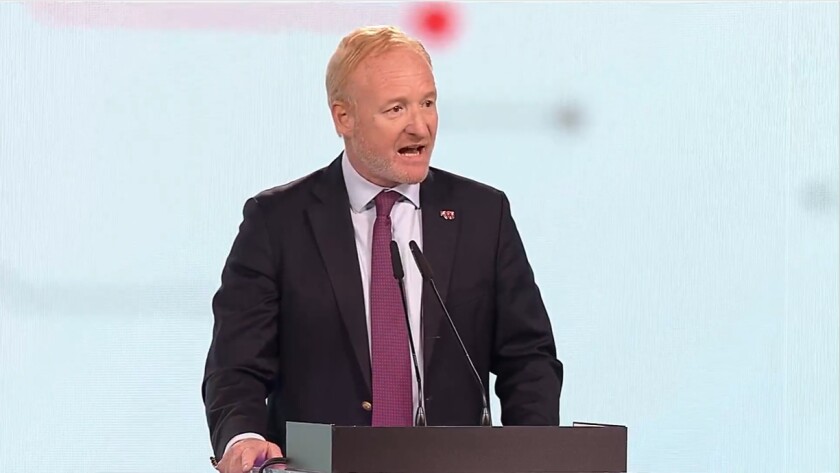European political leaders and senior figures from the EPO gathered in Munich and The Hague today, October 5, to mark 50 years since the European Patent Convention was signed.
The EPC, signed in Munich on October 5 1973, created the European Patent Organisation, which comprises the EPO and Administrative Council. The EPC also created the legal system under which European patents (EPs) are granted.
During a hybrid event at the EPO (which Managing IP attended virtually), the office’s president António Campinos and European Commission president Ursula von der Leyen were among the speakers who praised the EPC and its positive impact on innovation in Europe and beyond.
In keeping with a focus on the number 50, von der Leyen said it was the EU’s aim to become “climate-neutral” by 2050.
“Achieving that goal hinges on innovation in green and sustainable technology. Last year marked an all-time high for patent filings at the EPO with 193,000 applications. Many of those innovations were crucial for sustainable innovation.”
Von der Leyen added that it was fitting that the 50th anniversary of the EPC coincided with the “30th birthday” of the EU single market, which came into force in 1993.
Past and present
EPO president Campinos began his short speech by looking back at the EPO under some of its past presidents.
He said the EPO’s first president, Johannes Bob van Benthem, was instrumental in the early years, adding that Alison Brimelow (president from 2007 to 2010) was key to ensuring the EPO met its aim of “granting quality patents”.
More recently, the tenure of Benoît Battistelli, from 2010 to 2018, also saw “significant gains”, according to Campinos.
This included expanding the reach of EPs beyond European states, as well as helping the EPO become more efficient and tackling its backlog.
“I’m grateful to all those who have come before, and those in the present, who have helped us become a unique organisation that touches more than 39 countries and 2.2 billion people – a quarter of the world,” Campinos said.
UPC and more
Of course, perhaps the most major change in the last 50 years has been the introduction of the unitary patent and the Unified Patent Court (UPC).
The system, which entered into force on June 1, offers a single patent across 17 member states. EPs, in contrast, cover more countries but must be applied for on a national basis.
At the UPC, patent owners can win an injunction or invalidation order covering all contracting states.
Von der Leyen said applicants can make significant cost-savings while “the whole economy benefits”.
Campinos added: “With a single procedure and a single renewal fee, under a single currency, applicants can enjoy maximum protection for a minimum administrative burden.
“Whichever patent you choose [EP or unitary patent], it’s the impact that matters – bringing innovative products to market.”
Moving to the theme of female inventors, he added that he hoped to encourage a rise in patents applied for by women.
To close the morning session, the auditorium in Munich was played a video in which senior leaders in various EPC-contracting states were asked to use one word to sum up what the EPC represented.
“Sustainability, unity, solidarity, evolution, inspiration, and opportunity,” were among the terms heard.
The event, which also has panels on space technology and sustainable innovations, runs until 4 pm (CET) today.











